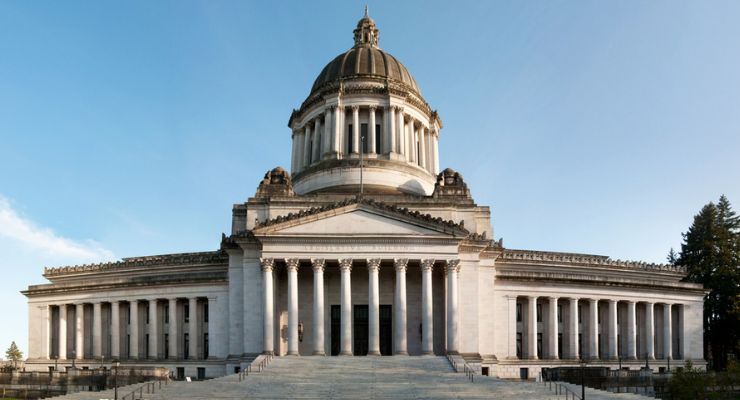05.17.23
This week, the Washington State Toxic-Free Cosmetics Act (HB 1047) was signed into law. This marks the passage of the 12th piece of legislation Beautycounter has influenced.
California signed the Toxic-Free Cosmetics Act into law in 2020.
Beautycounter’s Chief Impact Officer, Jen Lee, provided testimony to the Washington State Senate Environment, Energy and Technology Committee in support of the Toxic-Free Cosmetics Act in March 2023. Additionally, Beautycounter’s community of advocates sent over 1,000 emails to their state legislators urging them to support and pass the bill.
According to the beauty brand, this exposes consumers to potentially harmful ingredients that may be linked to a variety of concerns, like cancer, reproductive issues, liver damage, thyroid disease, asthma, skin irritation, and more.
Studies have shown that women of color are disproportionately exposed to harmful chemicals in cosmetics. A recent study by the American Journal of Obstetrics and Gynecology discusses the environmental justice impacts of beauty and states that people of color use more beauty products—and are disproportionately exposed to toxic chemicals as compared to white consumers—with Black consumers purchasing nine times more ethnic hair and beauty products than other groups.
Since Beautycounter was founded 10 years ago, its community has influenced the passage of 12 laws at the federal and state levels. Its mission is to get safer products into the hands of everyone, and a vital part of delivering on this mission is calling on lawmakers to pass health-protective laws.
“While this victory is a step in the right direction and absolutely should be celebrated, we still have a long way to go,” Beautycounter stated.
California signed the Toxic-Free Cosmetics Act into law in 2020.
Key Provisions in the Bill
Sponsored by State Representative Sharlett Mena and supported by Beautycounter’s nonprofit partner, Toxic-Free Future, key provisions in the bill include:- Restricting the manufacture, sale, and distribution of cosmetic products containing nine chemicals or classes of chemicals, including perfluoroalkyl and polyfluoroalkyl substances (PFAS), formaldehyde, ortho-phthalates, triclosan and mercury, beginning January 1, 2025.
- Directing the Washington State Department of Ecology, in consultation with the Department of Health, to identify and assess the hazards of chemicals or chemical classes that can provide the same or similar function in cosmetic products.
- Directing the Washington State Department of Ecology to implement an initiative to support small businesses that manufacture cosmetic products in efforts to obtain voluntary environmental health certifications.
- Directing the Department of Ecology to implement an initiative to support independent cosmetologists and small businesses that provide cosmetology services, such as beauty salons, in efforts to transition to using safer cosmetic products.
Beautycounter’s Chief Impact Officer, Jen Lee, provided testimony to the Washington State Senate Environment, Energy and Technology Committee in support of the Toxic-Free Cosmetics Act in March 2023. Additionally, Beautycounter’s community of advocates sent over 1,000 emails to their state legislators urging them to support and pass the bill.
Why Beautycounter Supports Regulation
While Beautycounter bans all ingredients in the bill through The Never List , and progress has been made through legislation like the Modernization of Cosmetics Regulation Act, Beautycounter posits that the personal-care products industry still remains underregulated.According to the beauty brand, this exposes consumers to potentially harmful ingredients that may be linked to a variety of concerns, like cancer, reproductive issues, liver damage, thyroid disease, asthma, skin irritation, and more.
Studies have shown that women of color are disproportionately exposed to harmful chemicals in cosmetics. A recent study by the American Journal of Obstetrics and Gynecology discusses the environmental justice impacts of beauty and states that people of color use more beauty products—and are disproportionately exposed to toxic chemicals as compared to white consumers—with Black consumers purchasing nine times more ethnic hair and beauty products than other groups.
Since Beautycounter was founded 10 years ago, its community has influenced the passage of 12 laws at the federal and state levels. Its mission is to get safer products into the hands of everyone, and a vital part of delivering on this mission is calling on lawmakers to pass health-protective laws.
“While this victory is a step in the right direction and absolutely should be celebrated, we still have a long way to go,” Beautycounter stated.












